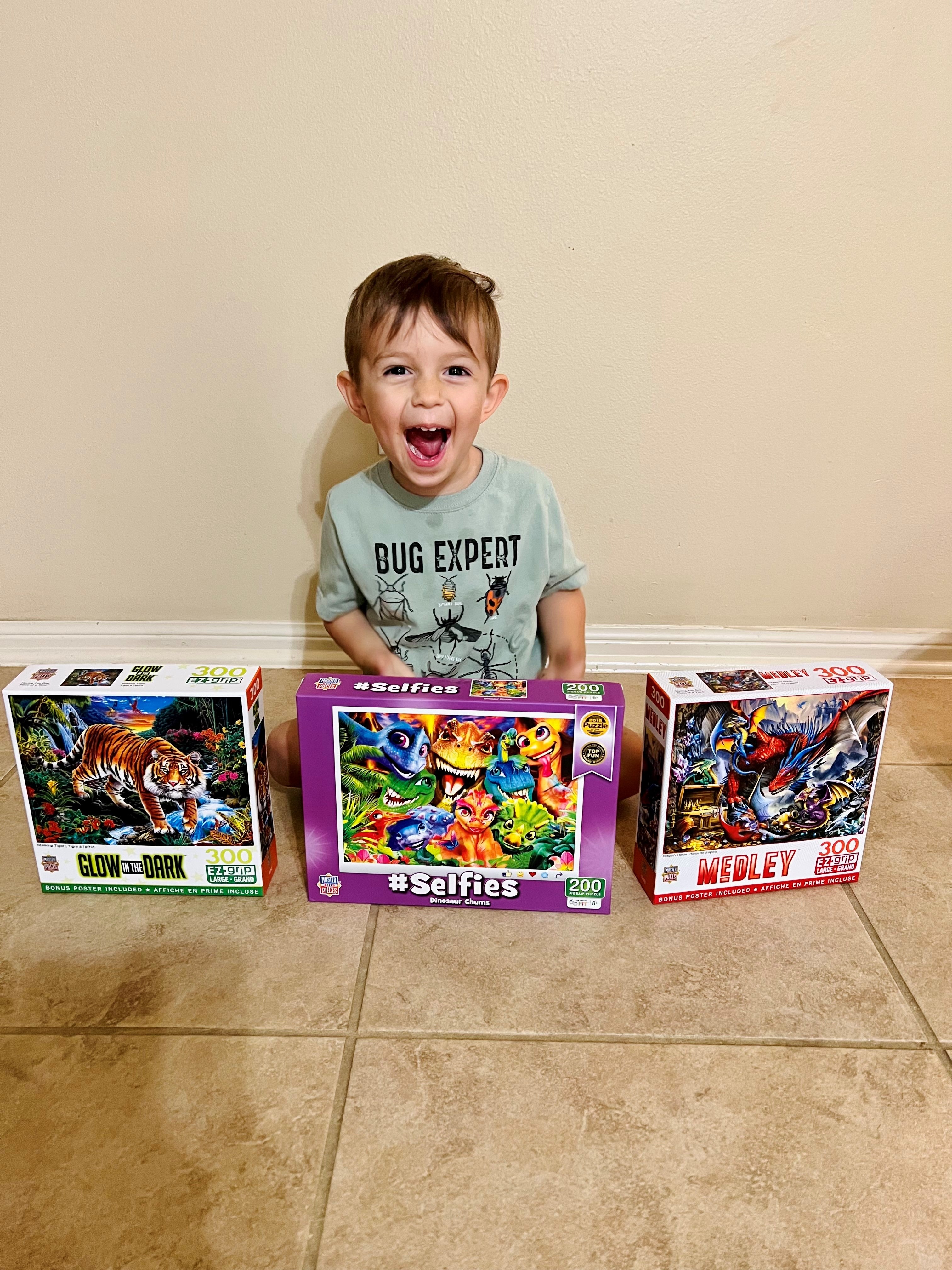
Top Tips for Working on Puzzles With Kids
Experts agree that movement really helps to get the brain going. An active body makes for an active brain, so make learning a hands-on affair. Many parents purchase beginner or difficult puzzles for their child to work on to help foster their developmental skills and abilities. That being said, working on even easy puzzles with kids requires a bit of extra patience and altered strategy. Here are just a few smart tips for working on puzzles with kids.
Choose the Right Difficulty Level
For younger children, easier puzzles are usually best, but as your children grow, you can increase the difficulty level and number of pieces. Older children are sure to enjoy the challenge of completing 500 piece puzzles or even 1000 piece puzzles. What you don't want to do is choose a puzzle that's too simple or too complex for their current ability level -- this may just cause them to get bored and give up or walk away.
"Choose a puzzle that is appropriate for your child’s age and development. Board and simple shape puzzles are great for beginners and toddlers. When you see her mastering them, move onto large floor puzzles and then jigsaw puzzles," writes B-Inspired Mama.
Consider Their Interests
Think about your child's interests when choosing the image on the puzzle. If your child is interested in nature, consider a scenic landscape puzzle. If they're still learning basic colors, consider a rainbow puzzle. You can find puzzles with almost any type of image, so don't hesitate to be creative to keep the child interested and focused on the final result.
Let Them Lead
Finally, letting the child lead the puzzle session can help them to grow in confidence about their abilities. Engage and ask them questions along the way to keep their mind occupied. Don't let them take a backseat or become passive; help them foster mindfulness through each and every piece. Hands-on interaction is best accompanied by thoughtful language and progressive critical thinking. If they have a certain strategy in mind, let them give it a try, even if it's not the way you would work on the puzzle yourself. Trial and error is a critical part of learning.
Ultimately, understanding these tips can help your child grow to develop a true passion for puzzles and creative learning. For more information about moderately difficult puzzles, contact Masterpieces.
- Choosing a selection results in a full page refresh.

